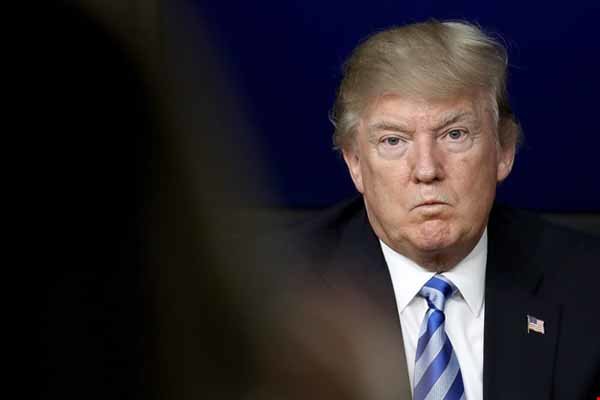The problem is that Donald Trump, in response to the protests of European leaders, has recently stated that US will grant the European Union and some other countries a temporary exemption from aluminum and steel tariffs. In addition to the EU, the exemption also applies to Argentina, Australia, Brazil and South Korea. Trump had already granted exemptions to Mexico and Canada when he signed the tariffs earlier this month.
Trump’s new decision includes 25% on imported steel and 10% on imported aluminum, which the Europeans are apparently exempt from. Trump initially announced only that Canada and Mexico would be exempted. Canada and Mexico are now negotiating with US on the NAFTA (North Atlantic Free Trade Agreement). Trump warned that he would only exempt the two countries from imposing tariffs if the negotiations were to go on successfully. In other words, the countries of Canada and Mexico are under pressure by Trump government. The same has increased Trump’s confrontation with his European allies.
The announcement of this 40-day exemption has once again sparked anger among European leaders over Donald Trump. European leaders have explicitly stated that Trump has triggered on the European Union and made himself ready to set fire to this union. European leaders have called for permanent exemptions in this regard, However, Trump has shown that he won’t simply agree with the European authorities' request!
Since the beginning of 2018, Trump and the European Union’s trade war has entered a new phase. Some American analysts believe that in the future, Trump's government will impose new and more extensive tariffs against the EU, China, Canada and Mexico. European officials are now facing someone who sees "economic protectionism" as a major policy in the field of commerce, and will try in the future to implement this policy. Undoubtedly, there will be more economic confrontation, or better to say, a thorough trade war between the United States and Europe. Furthermore, countries like China and Canada will also enter this confrontation with US.
In a recent statement by the European Union, it’s announced that the Council of Europe regrets the US decision to impose a tariff on imports of steel and aluminum. It strongly supports the European Commission's efforts to ensure full protection of the rights of the European Union in accordance with the rules of the World Trade Organization in order to adequately and appropriately respond to US actions.
Cecilia Malmstrom, the EU trade commissioner, said Brussels would wait for the formal announcement of US tariffs. “Imposing sweeping measures like this generally is not the way forward,” Ms. Malmstrom said in an interview with the Financial Times. “We risk seeing a dangerous domino effect from this.”
The equation is not that complicated in US! Donald Trump, in the 2016 presidential election, came up with the slogan of economic protectionism. That is, from the outset, he sought to challenge the structure of international economy, free trade, and the globalization of the economy. He knows very well that if he doesn’t fulfill his promises in this regard, he’s going to face with dissatisfied voters. Hence, since the beginning of 2018, the US President has embarked on a new economic dispute between US and its partners. The conflict is expected to continue until at least 2020. Trump plans to use the escalating economic confrontation with the European Union, China and other countries in the run-up to the next presidential election as a bet for winning the election. Hence, the vain expectation of European leaders that Trump will completely withdraw from his economic protectionist policies would never come true. At best, Trump will keep the European authorities in ambiguity over the tariffs.
The EU's confusion over Trump's economic measures is now evident. Some European countries believe that economic countermeasures against American products should be imposed, and even Washington should be challenged for its actions in the WTO. European leaders have warned Trump that retaliatory measures will be taken if the White House continues making barriers in May, meaning that European countries have not taken Trump’s 40-day deadline seriously.
It is also possible that European countries will impose heavy taxes on imported US goods in the future, in order to balance their economic relations with the United States. Some news sources mentioned that EU retaliatory measures could include tariffs on American products, including tobacco, orange, etc. There may also be stiff supervision restrictions on the US imported goods into the European borders.
Ultimately, it should be said that the economic tensions between Trump and European authorities will not be limited to the current situation, and will become a full-fledged economic war in the near future. This economic battle can challenge free trade at this period. Under such conditions, we will most likely see the unification of countries like China and India with the European Union to counter the US President’s protectionist policies. As noted, this controversy will last at least until 2020, so that Trump will be able to make the necessary use of this issue in the 2020 presidential election. Obviously, even if the current American President fails to succeed in the coming election, the next president of the United States will have a hard time dealing with the economic crisis created by Trump. This is what worries many American economists about the future of their country.
MNA/TT

























Your Comment